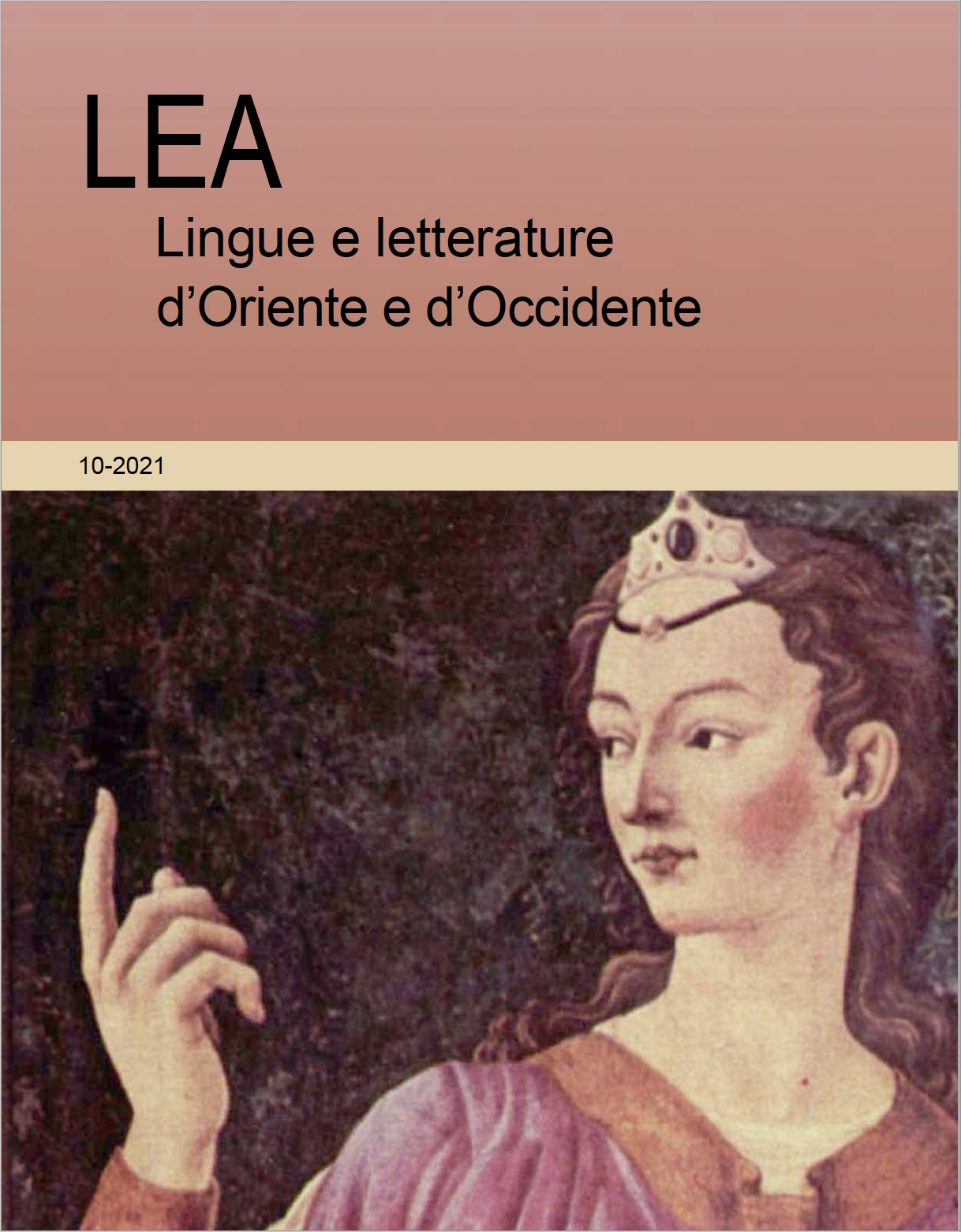“Abgelaufene Transits”, “vorbeiziehende Menschen”, “vertrackte Geschichten”. Il participio attributivo – un tratto complesso di un romanzo dell’esilio, “Transit” di Anna Seghers
Published 2021-12-10
Keywords
- Anna Seghers,
- Complexity,,
- German Attributive Participles,
- Poeticity,,
- Stylistic-linguistic Analysis
Abstract
This paper sets out the linguistic analysis of an exile novel, Transit (1948) by Anna Seghers, which, even if inspired by autobiographical events, presents a style of writing evaluated by literary critics as not simply realistic, but complex, evocative and poetic. The analysis, which aims to substantiate the theses formulated by the most recent literary studies on an empirical-textual basis, consists essentially of two parts. The first part offers a linguistic reinterpretation of the most evident stylistic elements of the novel already mentioned in the literary state of arts, while the second part focuses on a recurrent stylistic phenomenon not yet explored, i.e., the attributive participle. Through the different levels of analysis, the style of Seghers emerges as a language characterized by a complex mixture of signs.



